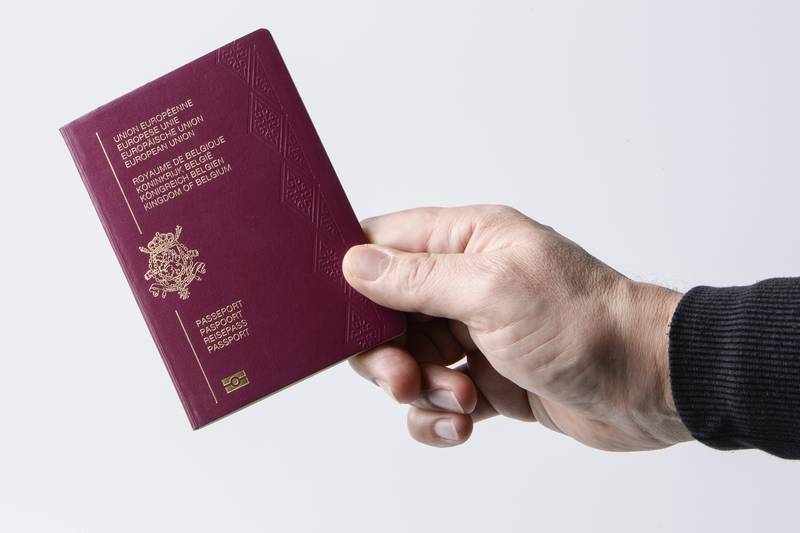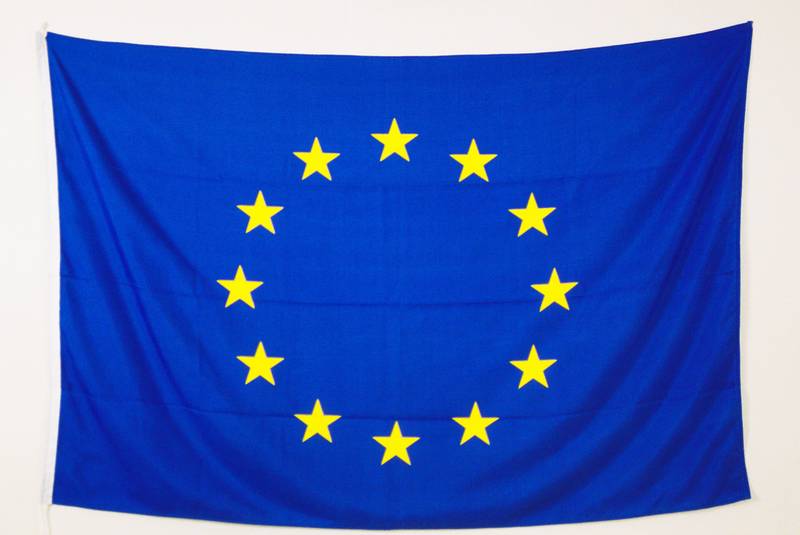Corruption Prevents Visa Waiver to Canada for Bulgarians and Romanians
Adelina Marini, April 22, 2016

The EU badly wants to be treated as a single entity, but it keeps not happening. From the outside the Union still looks like a collection of states with different development and, therefore, with a different approach toward them. Visa policies make no exception. On this subject the EU is about to fall in its own trap of eagerness to secure a visa-free regime for all its citizens, while at the same time avoiding a deterioration of relations with key partners. In 2013, member states agreed to amend the visa policy regulation concerning third countries by introducing a reciprocal regime. The goal was to exert pressure on countries like USA, Canada, Japan, Brunei, and Australia to lift their visa requirements for EU member states like Bulgaria and Romania. The regulation offers several steps in the case of any of these third countries refuses to waive its visa requirements.
The first step is having the “discriminated against” member states file notification in case the visa regime with third countries is still active. Five member states have filed such notifications for non-reciprocal treatment on April 12, 2014. Those are Bulgaria, Croatia, Cyprus, Poland, and Romania. Their complaints were about Australia, Brunei, Canada, Japan, and USA. If they do not lift their visa requirements within 24 months, the Commission is obliged to adopt a delegated act, with which the non-visa regime with these countries will be suspended for 12 months. The deadline expired last week. Instead of coming out with a delegated act, however, the EC published a communication which lit the fuses of MEPs from all political groups in the Civil Liberties and Justice committee (LIBE) during a debate on the subject this week (Wednesday).
MEPs agreed unanimously that the EC has no right to circumnavigate European legislation, the regulation is crystal clear, and visas must be required of American and Canadian nationals. The EC, however, disagrees with this position, as it becomes clear from its communication as well as from the presentation of EC’s Belinda Pyke. The regulation itself also contains loopholes, which could aid in avoiding the sternest sanctions.
Why?

If a third country should not lift its visa requirements, the EC could, within six months at the latest, take action for the removal of visa-free regimes for certain categories of citizens, or it could assess the situation and report on the reasons behind it refusing to suspend the regime. Besides, the EC could participate in three-way meetings with the third country and the member state with visa requirements to find a solution, which the EC is doing, actually. The last stage comes if the third country continues to refuse to lift its visa requirements – a visa regime can be enforced for all citizens of the country in question. In order for it to come into force, the delegated act of the EC must be approved by the Council and the European Parliament.
At the adoption of the amendments in the regulation in 2013, however, 21 member states announced that the EU’s institutions are obligated to assess the situation very carefully before making a proposal or a decision and take into consideration all possible negative political consequences that could arise from such a proposal or decision. And the EC did just that with its communication of 12 April, which got heavy criticism in the civil committee in the European Parliament.
The situation with the visa regime of third countries at the moment is as follows: In the case of Brunei there were restrictions for Croatians only, but on April 13th the EC received an official notice from Brunei authorities that they had made an exception for Croatian nationals and they have started issuing 90-day visa-free stay permits to Liechtenstein, which is not a member of the EU, but is a part of the European Economic space. On December 17 of last year, Japan officially notified the Romanian foreign ministry that it is extending the visa-free regime for Romanian nationals until December 31, 2018, which means that until that date there is a full visa waiver with Japan for EU citizens.
The situation with Canada and the US is the most difficult and complicated. Canada enforces visa requirements just for Bulgarian and Romanian nationals, whereas USA is blocking five countries – Bulgaria, Romania, Croatia, Cyprus, and Poland. The two countries’ criteria differ, but are somewhat connected. The reason behind Canada keeping the visa regime for the two members that joined the EU on January 1st, 2007, is that the number of rejected visa applications continues to be much higher than the 4% threshold. Over the last three years (2013-2015), the average visa denial rate for the two countries is 16%. Regarding immigration law violations, where the acceptable threshold is 3% average over three years, the two countries are doing fairly well – Bulgaria is with 4.3% and Romania with 2.5%.
In the case of Canada, however, there is another problem. During the three-way meetings, Canadian representatives announced they needed more information on certain spheres like the issuance of travel documents, the integration of Roma, border management and the fight against corruption. A large portion of these problems (without the Roma integration) actually is what is preventing the two member states from entering the second in rank (after the euro area) core of the EU – the Schengen security zone. Canada has committed to make technical and expert visits over the following months in order to assess the situation at site. The aim of these visits is to build trust and make it possible for the Canadian experts to assess the particular risks, associated with waiving the visas for Romanian and Bulgarian nationals and consequently figure out how could these risks be mitigated.
Canada has made a commitment to expand its system for electronic travel authorisation to include Bulgarians and Romanians, but has not committed to any specific deadlines. If this should happen,  it would make travelling to Canada easier for Bulgarian and Romanian nationals who have travelled to Canada in the last 10 years, or are holders of valid American visas.
it would make travelling to Canada easier for Bulgarian and Romanian nationals who have travelled to Canada in the last 10 years, or are holders of valid American visas.
The situation with the US is far more complicated. During the last three-way meeting on February 23rd of this year, American delegates presented the latest visa refusal statistics over the last year. 17.26% of Bulgarian applications got rejected; 5.29% for Croatia; the Cyprus refusals are the lowest – 3.53%; Polish are 6.37%; Romania has 11.16% no’s. The US permissible rate is 3%. Cyprus and Croatia are closest to it at the moment.
What are the risks behind enforcing visas for the USA and Canada?
The EC warns in its communication that there are several quite serious risks, in case there is a reciprocal reply to the USA and Canada, namely reinstating the visa regime for Canadian and American nationals for 12 months. Should the EU do this, the USA has already threatened to enforce visa regimes for all 28 members of the EU. “As a consequence, the situation would very likely not improve for the five Member States concerned and would worsen for all Member States currently enjoying visa-free travel to the US”, says in the communication. This is no negligible problem, for the EC expects that it could work up to issuing as many as eight million visas for travel to the USA. Having in mind that the price of a visa is 160 USD, this makes close to 2.5 billion euros of additional costs for European citizens and companies.
Canada has so far refrained from threatening with reciprocal measures, but according to the EC the situation is unpredictable. One could not easily dismiss the possibility that Ottawa will react with reciprocal measures, which would mean at least 1.5 million visas for European citizens or 375 million euro extra expenses for visas. The reverse situation is even scarier, if one could judge by the EC assessment. It is expected that the EU will start to issue a minimum of 10 million visas for American nationals per year. The EC sees it as highly unlikely that member states will manage to deal with such numbers in accordance to the visa code and keeping mindful of the time restraints for issuing visas. In the case of Canada, we are talking about around two million visas. This will lead to bottlenecks and increase in processing time, which will lead to nationals from these two states to give up on travelling to the EU, and this will seriously harm tourism and the aviation industry, as well as member states’ budgets, who will have to invest in additional equipment, new consular offices, increased numbers in border police, and systems to verify the issued visa.
According to EC calculations, France, Germany, Italy, Spain, Greece, and the Netherlands will be affected the most. The implementation of visas for Americans and Canadians could have serious political consequences as well, because, at the moment, the EU is in the final stage of negotiations on the agreement for strategic partnership with Canada and the comprehensive economic and trade agreement, which are expected to be signed during the EU-Canada summit this autumn. The EC is concerned that the temporary reinstatement of the visa regime could have a negative effect on the finalisation of the two agreements. Also at stake is the negotiation of the special trade agreement with the USA, which already is burdened with difficult political problems in the EU itself.
Despite all the risks and the situation the MEPs were unyielding. They accused the EC of extremely poor legislation and even of a refusal to uphold the law. Liberal MEP Sophie in 't Veld (The Netherlands) even stated that if the EU had no respect for its own citizens, how could we expect respect from others. They were all unanimous now is not the time to discuss whether visas should be required of the USA and Canada or not. The question is whether we agree to accept the discrimination against European citizens, whether we agree that Bulgarians and Romanians be treated like second-hand people, said Slovenian MEP Tanja Fajon (Socialists and Democrats). Some MEPs asked whether attitudes would have been the same if this did not concern countries like Bulgaria and Romania.
The EC demanded that it is within its rights to come out with a communication, rather than a delegated act and asked for a reasonable solution. If Canada should include Bulgaria and Romania in its electronic authorisation system this would really mean a 30% waiver on visas for Bulgarians and Romanians. The US is being offered the same like Canada, including an easier algorithm of issuing visas to those citizens, who have not had any visa or migration violations over the last 10 years. How will negotiations go ahead, especially with the USA, depends heavily on how will the situation change after the presidential elections there this autumn. One should not forget, however, that the EU is wary of Bulgaria and Romania who have been in a  monitoring regime over the reform of the judiciary, and the fight against corruption and organised crime for almost 10 years now.
monitoring regime over the reform of the judiciary, and the fight against corruption and organised crime for almost 10 years now.
Until two years ago, the two countries had no access to the labour market of several member states. The portion of denied visas for USA and Canada to citizens of the two states is a good illustration of the problem. Should the visas for the USA and Canada disappear, it is quite possible this to cause relief for the richer EU member states, for the poorest citizens of the Union would start for the new lands. Increase migration flows to the other side of the ocean could be expected due to the further concussions in the EU over the referendum in the UK on its EU membership, the ongoing refugee situation, and the troubles in the euro area.
Parallel to the negotiations for removing visas and the fulfilment of Schengen requirements (including those additionally imposed by individual member states), the EC should work with those members who have the lowest trust. In this sense, criteria pointed out by Canada are clear enough. They overlap the recommendations, which are in the EC’s reports both on the Cooperation and Verification Mechanism and those under the European semester (Roma integration, fight against unemployment and, most importantly, youth unemployment, raising the quality of education).
Translated by Stanimir Stoev
 Entrance to the Berlaymont building | © EC - Audiovisual Service
Entrance to the Berlaymont building | © EC - Audiovisual Service | © European Union 2020, EC - Audiovisual Service
| © European Union 2020, EC - Audiovisual Service Commission President Ursula von der Leyen | © European Union 2019 - Source: EP
Commission President Ursula von der Leyen | © European Union 2019 - Source: EP